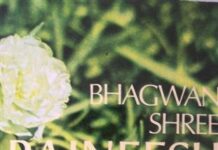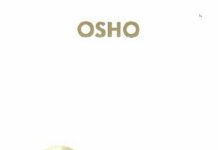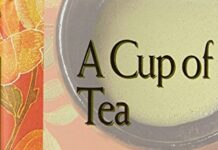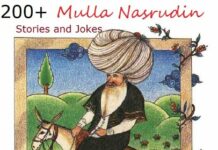
Ebook Info
- Published:
- Number of pages:
- Format: Epub
- File Size: 0.33 MB
- Authors: Osho Osho
Description
In Tao: The Pathless Path, Osho, one of the greatest spiritual teachers of the twentieth century, comments on five parables from the Leih Tzu, bringing a fresh and contemporary interpretation to the ancient wisdom of Tao. Leih Tzu was a well-known Taoist master in the fourth century B.C., and his sly critiques of a Confucius provide abundant opportunities for the reader to explore the contrasts between the rational and irrational, the male and female, the structured and the spontaneous.“Who Is Really Happy” uses the discovery of a human skull on the roadside to probe into the question of immortality and how misery arises out of the existence of the ego.“A Man Who Knows How to Console Himself” looks beneath the apparent cheerfulness of a wandering monk and asks if there is really a happiness that endures through life’s ups and downs.“No Regrets” is a parable about the difference between the knowledge that is gathered from the outside and the “knowing” that arises from within.“No Rest for the Living” uses a dialogue between a despondent seeker and his master to reveal the limits of philosophy and the crippling consequences of living for the sake of some future goal. “Best Be Still, Best Be Empty” discusses the difference between the path of the will, the via affirmitiva of Christianity, Judaism, and Islam, versus the path of the mystic, the via negativa of Buddha and Lao Tzu.Tao: The Pathless Path also features a Q&A section that addresses how Taoist understanding applies to everyday life in concrete, practical terms.Osho challenges readers to examine and break free of the conditioned belief systems and prejudices that limit their capacity to enjoy life in all its richness. He has been described by the Sunday Times of London as one of the “1000 Makers of the 20th Century” and by Sunday Mid-Day (India) as one of the ten people―along with Gandhi, Nehru, and Buddha―who have changed the destiny of India. Since his death in 1990, the influence of his teachings continues to expand, reaching seekers of all ages in virtually every country of the world.
User’s Reviews
Editorial Reviews: About the Author Osho is one of the best-known and most provocative spiritual teachers of the twentieth century. Beginning in the 1970s he captured the attention of young people from the West who wanted to experience meditation and transformation. More than 20 years after his death, the influence of his teachings continues to grow, reaching seekers of all ages in virtually every country of the world.
Reviews from Amazon users which were colected at the time this book was published on the website:
⭐This one of my favorite OSHO books. OSHO was a SPIRITUAL MASTER, and a true TAOIST MASTER. Reading this book with an open heart and mind helped me to establish a connection and relationship with DIVINE EXISTENCE ( THE TAO); which is the most valuable, joyful and blissful thing that has ever happened to me in my life. OSHO says on page 13, “Let this be the definition of happiness : To be with the whole is to be happy: to be with the whole is to be healthy; to be with the whole is to be holy. To be separate is to be unhealthy; to be separate is to be neurotic; to be separate is to fall from grace.” OSHO says on page 16, ” When you exist separately from existence you exist in misery, because you become disconnected; and nobody else is responsible for it—it is you.” OSHO says on page 44, ” The whole existence is equal. The trees and the rocks, and the animals and the birds, and men and women, and God—all are sharing the whole existence on equal terms. The moment you see this tremendous equality, this oneness, you are joyful.”— Enough said. Another excellent OSHO book that is not well known, but it is an OSHO gem is THE LAST MORNING STAR. This book is a Devotional spiritual book about the enlightened woman mystic DAYA; and her love for THE DIVINE that is portrayed through her beautiful poetry. This book is filled with Devotional spiritual truths by OSHO.
⭐This book was recommended to me by a co-worker. I must say that I have never read about TAO before, nor really gave it much interest, but when the coworker gave me a synopsis of what this book was about, I became curious, as it sounded like something that I would be interested in. I just finished reading it, and will read again asap. I have so many highlights in this book. The book was mind-blowing. I must admit that there are parts where it can become a bit complicated to understand but once you get through it, and give it another read, it becomes so clear. I really enjoy this book and it will be a staple in my collection. I will keep it very close by and will give it plenty more reads I am sure. I highly recommend this book.
⭐This book really gives you a clear experience of Taoist thought. Simple language, everyday examples – I finally understand.
⭐as i got deeper and deeper into this book, i realised it was my philosophy…how i’d felt and thought all along. but i didn’t know it had such a voice.let go, flow with the current, relax…all is well.one of the three books in my library i wouldn’t do without. in fact, it’s number one.
⭐I obtained a lot of valuable concepts in this book that has helped me have a more stress free outlook on my life. Very worth reading. One of the best books by Osho I have read so far.
⭐beautiful book. very smooth cover.
⭐good
⭐I have read several books on the Tao but Osho has got to be the best of the best. I also have Everyday-365 Daily Meditations For The Here and Now and its a must have. Order both; you will be overjoyed.Deborah
⭐We have to understand that Osho was non-English speaking and his discourses were translated by people who did not have English as a first language. As a result, some of the passages can be a bit difficult to comprehend, from the point of view that for spiritual texts they can seem to be quite the opposite. Having established this, it is apparent that the Osho books contain some very profound teachings. I have read several now, and particularly liked this book. I shall be reading it again once I have got through a few others.
⭐Tao means the way, which is more like a bird flying in the sky leaving no markers behind. The bird has flown but no marks are left; it is a pathless path. Osho, in this book, comments on five Taoist parables, which according to him are very deep and they have to be penetrated and meditated upon to know the real meaning. Confucius is used as a laughing stock in Taoist stories, where he is figured as a traveller going from somewhere to somewhere, always seeking and searching for knowledge.In one of the parables Confucius asks a poor wandering monk who is singing a song of joy: “Master, what is the reason for your joy?”“I have many joys”, replies the monk. “ Of the myriad things which heaven begot, mankind is the most noble – and I have the luck to be human. This is my first joy. People are born who do not live a day or a month, but I have already lived to ninety. This is my joy. For all men, poverty is the norm and death is the end. Abiding by the norm, awaiting my end, what is there to be concerned about?”“Good!” says Confucius, “here is a man who knows how to console himself.”By interpreting the story Osho says that there cannot be any reason for joy as it is natural like one’s health. So never ask reasons for someone’s happiness; it is just like asking why somebody is healthy.Also, there cannot be many joys. The monk feels himself happy because he at the age of ninety is still healthy and alive when so many others have died at their prime young age. The monk says that everybody is going to die and everybody else is poor and hence he doesn’t feel miserable either. According to Osho the monk’s happiness is a comparative happiness which is a pseudo-happiness. His interpretation reflects the Taoist vision.Confucius believes in consolations whereas Tao believes in contentment. What is needed , according to Osho, is contentment and not consolation and contentment comes only when one is not comparing. Osho says: “Don’t compare with those who have more, don’t compare with those who have less.” The goal of all Confucian philosophy is that “ a man must become a gentleman”; one cannot find a loophole in his character and all virtues have become real in him. But the Taoists don’t talk about the goal at all.The whole of Tao’s message according to Osho is that “Be anarchic, be authentically true to your own being. Listen only to yourself. Don’t allow anybody to discipline you. Don’t allow anybody to make a slave of you, don’t allow anybody to condition you. Man who has lived, loved, experienced, meditated, who has gone through so many things in life, has become more worthy – he has to be given a higher life. Happiness is natural; one should not seek it, one should simply enjoy it.” Some of Osho’s observations:The moment a person becomes perfect, he is dead. An alive person is never perfect, and my teaching is basically not for perfection but for totality.Laziness is just like the common cold – nothing much to worry about. Ego is like cancer. It is better not to have either.An intelligent person will have to think before he acts. The soldier has to act before he thinks.Osho says: “The Indian society is based on the laws of Manu and the Chinese society is based on the laws of Confucius. And both men have destroyed both of the countries.”
⭐I believe this is one of those books that will find its way to you once it sees you fit to understand it. The profound knowledge contained in this book will forever change our lives. It will lead us to a renunciation, towards a pathless path, a way of eternal truth and harmony. To understand Tao from osho is truly a blessing. No better man ever lived in the modern era could’ve interpreted Tao as osho did. If you truly believe you are in the quest of finding the meaning of your life, this book might very well be the key to it. This is ne of the truly magnificent and under-rated, unknown gem of a book.
⭐Outro maravilhoso livro sobre “o caminho”. O objetivo é o caminho, o caminhar, e não um ponto arbitrário de chegada. Osho explica que a vida moderna é obsessiva: o objetivo sempre está no futuro, no amanhã, e nunca chega. Mas, podemos despertar e entender que o objetivo é o hoje e o propósito da vida é simplesmente viver.
⭐
⭐More than value for money. Time well spent. I benefited a lot. I recommend to all those who are earnest in their search.
Keywords
Free Download Tao: The Pathless Path in Epub format
Tao: The Pathless Path Epub Free Download
Download Tao: The Pathless Path Epub Free
Tao: The Pathless Path Epub Free Download
Download Tao: The Pathless Path Epub
Free Download Ebook Tao: The Pathless Path





